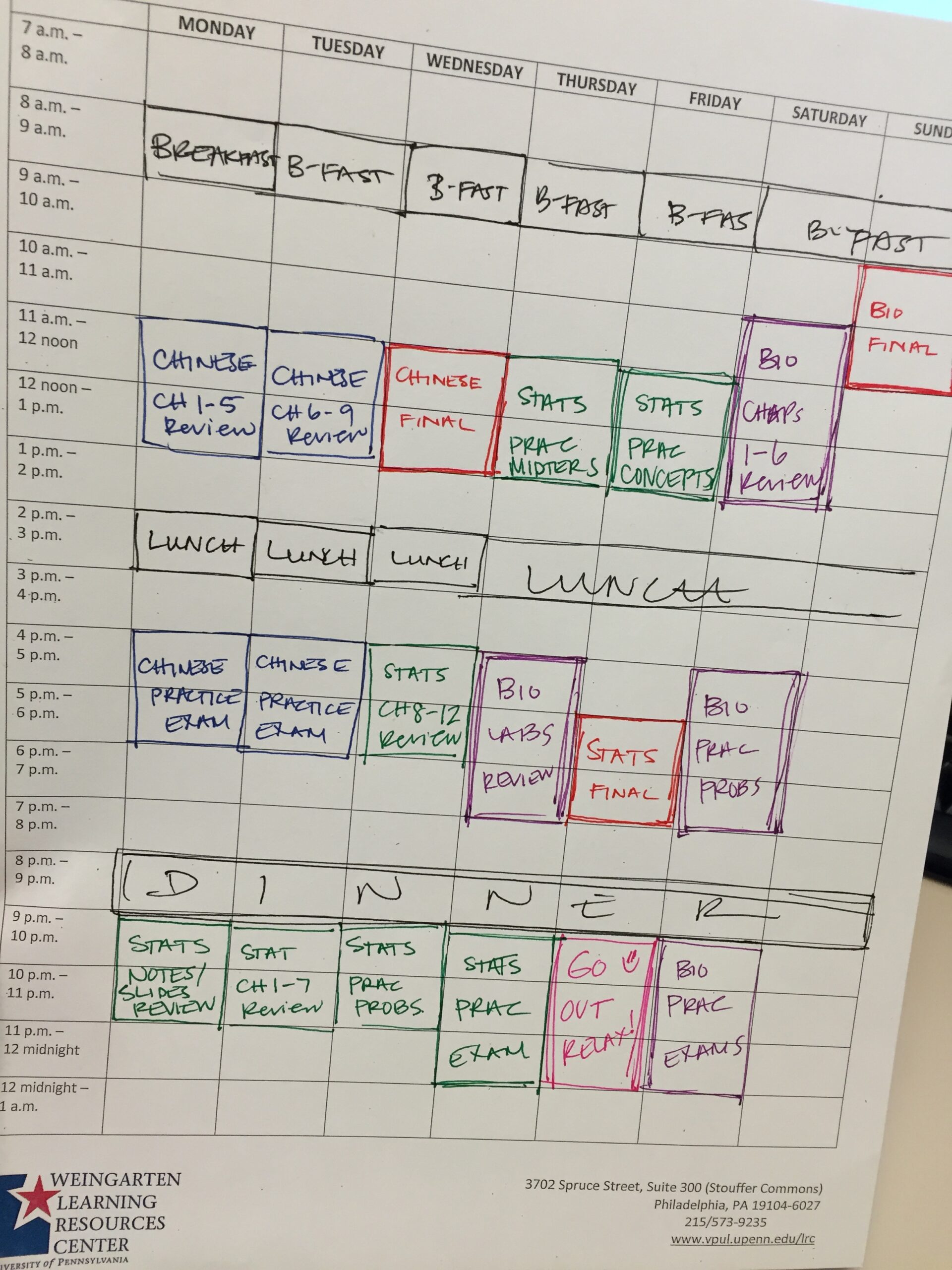Want to keep your sanity during finals week? So you have 5 classes this semester with at least 3 final exams and 2 final projects or papers. Need to accomplish them all in 7 days? No problem. There’s a process you can use to deal with this situation that seems to always sneak up on us every semester. Here’s a suggested step-by-step process:
1. Rank Your classes
Rank your classes according to which one is sooner, which one is more important for your major, and/or which one is harder and needs most of your attention.
2. Break Down the tasks needed to study for each class
This varies for everyone’s needs and for the subjects being tested. For example, some people need to carve out time to skim their class notes and lecture slides and then need more time to actually practice their knowledge on old midterms or practice problem sets. Make sure you allocate your time wisely, 30/70 is what we recommend: 30% review and 70% practice.
3. Realistically Assign time for each task for each class
Now that you’ve figured out what you need to do for which class, it is now time to figure out the answer to each task: “for how long?” Some people read slower and may need an hour or two just to skim a chapter or notes, others may require less. The recommendation here is to caution against assigning more than 3 hours per task.
4. Plug in all studying tasks in an hourly schedule
So at this point, you got the which subject, what tasks, for how long, and now you need to know when. Try Google Calendar, iCalendar, or an old-school paper schedule template. Tip: avoid burnout by being realistic vs. overly ambitious in scheduling. Make sure to switch up the subjects so you don’t overload and keep breaks and meals in the schedule as well! Make your time as visual as possible.
If you would like more support on how to do this, come into Weingarten and a learning instructor would be happy to help!
Staff writer: Victoria Gill

